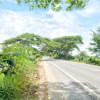Graduation to Developing Country: Bangladesh to lose $7b in exports a year
Bangladesh stands to lose $7 billion in export earnings every year once it graduates into the developing country bracket in 2027 as the trade benefits it currently enjoys will be phased out then, a Planning Commission report says.
As a least-developed country, Bangladesh currently enjoys zero-duty benefits on its shipments to the European Union, Canada, Australia and many other countries.
But those benefits will be lifted upon LDC graduation and replaced with tariffs, a development that would erode the price competitiveness of Bangladesh’s products in the global market.
By 2031 the amount would balloon to $13 billion, found a government impact assessment on LDC graduation by the General Economics Division [GED] of the Planning Commission.
The report titled ‘Impact Assessment and Coping up Strategies of Graduation from LDC Status for Bangladesh’ is likely to be placed at a meeting today of the national taskforce to implement the roadmap for graduation.
The taskforce -- which is led by Abul Kalam Azad, the prime minister’s chief coordinator on Sustainable Development Goals -- was formed in January last year.
However, the loss in export earnings can be averted if Bangladesh manages to negotiate bilateral trade deals with nations, said a high official of the planning ministry.
For instance, Bangladesh can lobby with the EU to grant it the GSP+ scheme, under which the country can continue to enjoy zero percent duty. Otherwise, it would be left with the standard GSP scheme, which calls for up to 9.6 percent duty.
Multilateral concessional loans too will dry up.
At present, such loans account for about 60 percent percent of all foreign loans. It would come down to 46.2 percent in 2026 and 4.2 percent in 2041, found the study.
The development means the country would have to make do with high-cost market borrowing, whose share will increase to 42.4 percent in 2026 from 26.3 percent at present. In 2041, it would make up 82.41 percent of all foreign loans.
The graduation will also increase the cost of interest of external debt from 2026. The interest payment will increase to 1.2 percent in 2041 from 0.7 percent in 2026.
Subsequently, the impact assessment report advised raising the tax to GDP ratio to 15 percent by 2031 from existing 10 percent and keeping the fiscal deficit at less than 5 percent to navigate the challenges of graduation.
It also suggested keeping the inflation rate at less than 5 percent and improving the ranking on the World Bank’s Doing Business index from 176 in 2019 to 75 by 2024.
The assessment report also proposed for ramping up spending on the education sector to 3.5 percent of GDP by 2031 from 1.8 percent at present.
It also called for strengthening banking supervision and reduction of default loans to 7 percent or below by 2021 from current 11.70 percent.
In March 2018, after 43 years as an LDC, Bangladesh became eligible for graduation to the developing country bracket after it met all the three criteria.
The Committee for Development Policy (CDP), a United Nations panel, announced the graduation.
The CDP will review Bangladesh’s progress in 2021, and the country’s official graduation from the LDC category will take place after a three-year transition period.


 For all latest news, follow The Daily Star's Google News channel.
For all latest news, follow The Daily Star's Google News channel. 








Comments